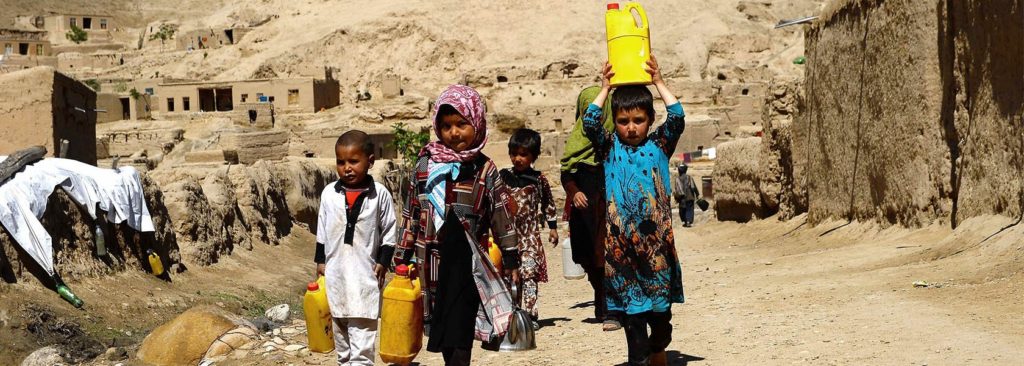FIDH – International Federation for Human Rights and its member organization for Afghanistan Armanshahr Foundation/OPEN ASIA
Joint Press Release
(Paris) The European Union (EU) must use the upcoming human rights dialogue with Afghanistan to call on the government to address human rights violations, prioritize accountability, and strengthen the rule of law, as the country remains mired in conflict and severe insecurity, FIDH and its member organization Armanshahr Foundation/OPEN ASIA said today.
Paris, 3 May 2018: The European Union (EU) must use the upcoming human rights dialogue with Afghanistan to call on the government to address human rights violations, prioritize accountability, and strengthen the rule of law, as the country remains mired in conflict and severe insecurity, FIDH and its member organization Armanshahr Foundation/OPEN ASIA said today.
FIDH and Armanshahr Foundation/OPEN ASIA made the call ahead of the EU-Afghanistan Special Working Group on Human Rights, Good Governance, and Migration, which is meeting for the first time on 5 May 2018 in Kabul. In conjunction with their call, the two organizations released a briefing paper that provides an update on the human rights situation in Afghanistan. The briefing paper raises concerns regarding: shrinking space for civil society; impunity for perpetrators of serious crimes; lack of safeguards for women’s rights; pervasive corruption; weak rule of law and legal framework; and the situation of internally displaced persons (IDPs) and Afghan returnees.
“The Afghan government must end its ongoing and indiscriminate targeting of civilians and live up to its international legal obligations. The government must protect its own people and establish accountability for serious crimes,” said FIDH Vice-President Adilur Rahman Khan.
Civilians continue to bear the brunt of the conflict in Afghanistan, and suffer human rights abuses at the hands of both armed groups and the government. This extreme violence is accompanied by a complete lack of accountability and justice for the victims. Almost no domestic prosecutions of perpetrators of severe crimes – such as war crimes and crimes against humanity – have taken place, and individuals accused of committing atrocities against civilians are being awarded with immunity in exchange for laying down their weapons.
The joint FIDH-Armanshahr Foundation/OPEN ASIA briefing paper notes that the request by the Office of the Prosecutor of the International Criminal Court (ICC) to open an investigation into war crimes and crimes against humanity committed in Afghanistan was a step in the right direction, but that it needs to be accompanied by greater efforts by the Afghan government to bring an end to the impunity for perpetrators of grave human rights abuses.
“There can be no peace without justice in Afghanistan. If human rights, accountability, and justice are issues that continue to be used as bargaining chips, Afghanistan will never be able to move in the right direction. The EU must ensure accountability, justice, and respect for human rights remain on top of Kabul’s agenda, especially during peace negotiations with armed groups,” said Armanshahr/OPEN ASIA Executive Director Guissou Jahangiri.
Millions of Afghans live in provinces where the Taliban wields considerable power and influence. In addition, there are armed groups, including the Islamic State, that continue to target civilians. As such, there are significant concerns that the parliamentary elections scheduled for 20 October 2018 will not be genuine, inclusive, or participatory.
The joint FIDH-Armanshahr Foundation/OPEN ASIA briefing paper lists numerous recommendations that EU officials should make during their dialogue with the Afghan government.
Press contacts:
FIDH: Ms. Maryna Chebat (French, English) – Tel: +33648059157 (Paris)
Armanshahr/OPEN ASIA: openasiafrance@gmail.com, http:openasia.org
DOWNLOAD AND READ BRIEFING PAPER: 20180503_EU-Afghanistan-Dialogue_BP


